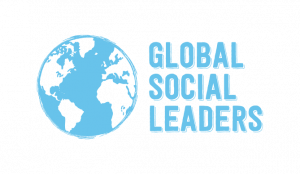We are delighted to share a blog written by student Asli, from NUN Schools, who is part of team Swaltics delivering a Global Goals project for the 2020-21 GSL Global Goals Competition.
Their project is among over 957 social action projects currently running as part of the GSL movement and we are excited to be supporting them to design and lead positive social change in their community.
We took on an issue the importance of which the global society fails to recognize and took humble steps to offer a solution.
Project Summary
Plastic pollution has recently come to be one of the most critical complications and a major issue regarding environment cleanliness. When observing our environment, it is even visible to us as individuals how much we are surrounded by the accumulating amount of plastic waste. Be it finding a fish with a bottle cap stuck to its mouth or birds trying to consume plastic, every one of us has experienced first-hand the harm plastic pollution has inflicted on the wildlife. The upsetting and not sufficiently recognized part of this major global problem is that we, ourselves, are causing it. With this sense of guilt in mind, we are driven to position ourselves such that we are part of a solution, not staying idly as the only source of the problem. We believe that our project, where we set out to reduce plastic pollution, will bring us one step closer to solving problems such as global warming, carbon emissions, and wildlife endangerment at least in our own circles as humble examples of taking action. In this project, we aim to build an extrusion machine that produces filaments, the raw material of 3D printers, from the plastic waste products we will collect from our everyday environments. Our objectives include the following:
- decreasing the amount of plastic waste products present in our school environment first, then expanding to other neighbourhoods,
- producing filaments from these collected plastic waste to be used in 3D printers,
- designing and producing items in our 3D printing facility such as trash bins made specifically to collect plastic waste for our school as well as for less fortunate schools in our district.
These three aims give us a complete project cycle as a closed loop, where we start with raw plastic and complete the cycle by producing trash bins to collect raw plastic. With the successful completion of our project, we will be equipped with experience and know-how to train and/or work with other teams from other schools planning to work on similar projects. We strongly believe that our project, as much as it is a humble beginning, has the capacity and premise to inspire people like us all over the world.
The Journey
Throughout this project, there were many challenges we had to overcome, one being our lack of knowledge and experience. None of us had any previous experience building a machine, let alone such a complicated one. We had to do loads of research and watch countless DIY’s. During the building process, we found ourselves facing obstacles impossible to cross without professional assistance. Though we conducted thorough research before starting our project, we realized that in some areas, knowledge on the internet alone isn’t enough. At times, we had to call in electricity technicians but, in the end, our school provided us with enough recourses and help to solve all these issues, allowing us to successfully complete the construction of the machine. Another big challenge was getting permission from the school to stay in the dormitory and complete the project. Due to the Covid-19 pandemic, the Turkish Government had to enforce lockdowns and travel bans. Since two of our team members lived out of town, it was extremely difficult to get permission for them to come to the school and stay at the dorm.
Looking back, we now realize that all these challenges we faced drew us closer together as a team and helped us develop numerous skills such as, problem recognition, problem solving, open-mindedness especially in team-projects like this, commitment, collaborative skills, organization and planning, research, and communication skills. It also helped us discover our strong suits and hobbies. Whether it be liking woodworks, mechanics, or finding assembling pieces together like a puzzle fascinating, every member learned something new about themselves as well. This project didn’t just benefit the environment, it also helped us evolve into better, more mature versions of ourselves.
The Next Chapter
With all the experience and knowledge we gained, we strongly feel and recognize that our project has room to expand and improve. Executing this project on a larger scale would be one of them and it requires expanding our reach by collecting plastic from districts other than our own and donating the objects designed by the 3D printer to less fortunate schools apart from of the ones we initially aimed to donate to. We would also be willing to assist other such projects in similar schools. Just because GSL is coming to an end, doesn’t mean our project has to.
We most definitely recommend our peers to get involved in similar projects! Protecting mother nature is beautiful and the feeling of knowing you made a difference, even a humble one like ours, to reduce its burdens is spiritually uplifting! Our message to our peers is that it’s time to step out of their comfort zones and trust themselves. There’s a whole world out there that needs our help, and the only way we can completely reverse the damage done by us is by working side-by-side. They can join a humanitarian project, start a club, put themselves out there! Every single one of our voices matters; and we have the power to turn our voices into a choir signing the songs of peace and harmony.











